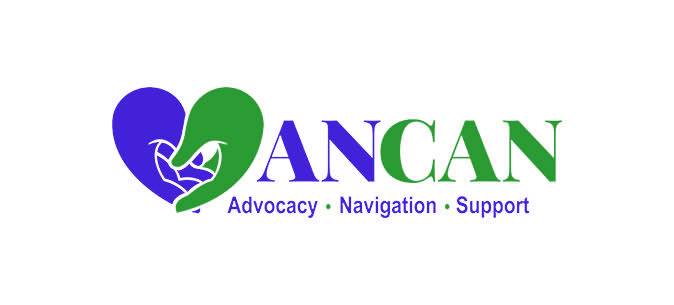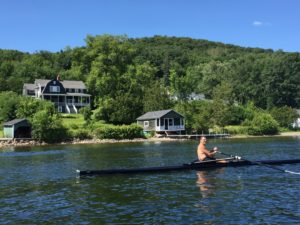
by Rick Davis | Mar 1, 2020 | Exercise, Advocacy, Cancer Resources, Men 'Speaking Freely', Men's Breast Cancer, Prostate Cancer, Recent News, Women's Breast Cancer
Those of you who have followed me for years know I am totally committed to exercise. I strongly believed and endorsed its positive effects for disease control, especially for cancer. long before it was fashionable or well documented. I started a cancer exercise program at UCSF within 18 months of being diagnosed myself in 2007, that has flourished. At the time there was a paucity of evidence …. now it is abundant. Some of that evidence is well documented on the Research Page of our MedaFit site.
 Our regular paritcpants in the High Risk/Recurrent/Advanced Prostate Cancer Virtual Group will know we have two particpants who swear by Dragon Boat Racing ….. Richard Foody who paddles for the MSKCC team.trained by guru Donna Wilson, as you can see.
Our regular paritcpants in the High Risk/Recurrent/Advanced Prostate Cancer Virtual Group will know we have two particpants who swear by Dragon Boat Racing ….. Richard Foody who paddles for the MSKCC team.trained by guru Donna Wilson, as you can see.
And Advisory Board Member, Richard Wassersug PhD who paddles out West for his Vancouver based Butts in a Boat team. Richard’s colleagues recently published an academic paper in the February 2020 Issue of the Journal of Psychosocial Oncology that, to none of our surprise, concludes:
Physical activity improves quality of life in men with PC and recreationalphysical activity interventions may be attractive supportive care options for PC survivors with both physical and psychosocial benefits. Joining a sportfocused care group may increase social support and elicit positive psychological growth and future interventions may benefit from integrating the unique characteristics of dragon boating into peer support programs formale cancer survivors.
You can read the full Dragon Boat PCa study 2020 by clcking on the live link. Kudos to both Richards on their Dragon Boat Paddling!
 Me on the other hand ….. am very happy in my single scull – the exercise without the social part!
Me on the other hand ….. am very happy in my single scull – the exercise without the social part!

by Rick Davis | Feb 23, 2020 | Advocacy, Cancer Caregivers, Cancer Resources, Health Resources, Prostate Cancer, Recent News
Read Peter Kafka’s recent thoughts on getting your medical team to work in unison. This is not a hypothetical either – Peter has a quarterback doc in S. California, lives on Maui, and wants to do chemo locally. (rd)
A Tale of Two Doctors
I know that some of you, like myself, rely on the expertise of a doctor at a Center of Excellence or a larger medical facility that might be a good distance away from home and then choose to get treatment for your disease locally. This brings up the situation of two doctors communicating and working together on your treatment plan. This is the circumstance I find myself facing at the moment.
For the past six years I have relied upon a trusted genitourinary medical oncologist, Dr. Jeffrey Turner at Prostate Oncology Specialists, to guide and manage my treatment course on this aggressive prostate cancer journey I am on. Now that I have progressed to the point that a regimen of chemotherapy is called for, I have chosen to carry out this treatment at my local cancer center here on Maui. So, I have been interviewing the few Maui-based medical oncologists to determine who could work under the direction of Dr. Turner.
One of the doctors I met with the other day was a young man who appeared to be quite knowledgeable, not long out of medical school and therefore perhaps lacking in practical experience. This doctor let me know right out of the gate that he did not agree with Dr. Turner’s treatment plan. He thought it was far too aggressive and that he would not advise it. He had statistics and studies to back up his argument. I think that he had my “best interests” at heart, letting me know that the side effects of chemotherapy can be quite harsh that is why he utilizes this protocol further along in the journey.
I listened to his argument, and understood where he was coming from, but I realized that he, like many doctors was more interested in treating the disease and not the person. Good medical schools can probably be quite proficient in teaching doctors how to select the right treatment modality off the shelf for any particular disease. But behind the disease is a person – me – who might present some unique aspects of the disease that require thinking outside the box and perhaps a more aggressive approach to treatment than the “standard of care”.
Convention says that the English alphabetical order begins with A and ends with Z. But if we are treating the person rather than just the disease it might be called for to end the alphabet with WZYX. We haven’t left out anything, just changed the order a bit. I think for those of us who might be facing (prostate) cancer with perhaps some unusual factors, it behooves us to find expert physicians who will manage the treatment of US and not just the disease. And then if necessary, find a local doctor who will coach on the field. And yes, I did find my man!
Editor’s Note – this is not a new problem to us. Just recently another of our participants asked his local oncologist to speak with his QB doctor at a renowned Center of Excellence in another state. The call took place in the patient’s presence, they waltzed around each other and appeared to arrive at the same conclusions, when in fact they did not agree at all. The call was not conducted on a speakerphone.
The lesson here is to make sure you are party to 3-way conversations. Doctors may accord each other professional courtesy before considering the patient’s interest. At least be sure what each one is suggesting before they speak so you can challenge an unexpected final recommendation.
Remember, YOU are your best advocate!

by Rick Davis | Feb 9, 2020 | Cancer Resources, Blood Cancers, Brain Tumors, Prostate Cancer
This week, Peter Kafka, our Board Chair and Lead-Moderator for the Low/Intermediate Risk Prostate Cancer Virtual group highlights an issue that crosses the minds of many living with cancer:
How can I have cancer? I don’t feel sick!
One of the odd things about a diagnosis of prostate cancer as well as other cancers is that it is often asymptomatic. Prostate cancer is often detected though a routine blood test or digital rectal exam. This is especially true for men who get regular physical exams. Perhaps there might be some changes in our urinary function as we age, such as increased frequency and a lessening of the stream. But generally, many men, in our sixties and seventies often proclaim that; “I am quite healthy, active and fairly fit. How can I possibly have cancer?”
Fortunately, most men with a diagnosis of prostate cancer have very low-grade disease that might never need treatment beyond routine active surveillance by a doctor. The only “downside” being that the man, and his doctor and family must be comfortable living with a diagnosis of CANCER and understand that the rate of growth is so low that it might never need further treatment. Such men will never experience symptoms of prostate cancer beyond perhaps changes to their urinary stream or frequency which is common for most men as we age.
Even men like myself, with advanced prostate cancer can go through cycles where one feels quite healthy and vigorous yet tests can indicate that the cancer is spreading and growing within our bodies. With the advent of advanced high-tech scans such as the PSMA scans, genetic testing, multi parametric MRI’s and other methods of early detection, indications of some level of prostate cancer progression can be observed at increasingly earlier stages when there are no outward symptoms or signs of distress.
The down side of these advances in early detection is that our minds can get into denial mode because we “feel just fine”. In fact, it is very often the case that it is the side effects of treatment regimens such as ADT drugs, or the after effects of surgery or radiation that make us feel sick rather than the cancer itself. Prostate cancer can be quite sly in this way and trick us into thinking that we are much better off without any treatment. This is the dilemma of our modern age. It used to be that men were diagnosed with prostate cancer only when it had already progressed to the point of distressing symptoms which could not be ignored. We now live in a very different paradigm. Lucky us!

by Rick Davis | Feb 6, 2020 | Complementary Medicine, Advocacy, Blood Cancers, Brain Tumors, Cancer Caregivers, Cancer Resources, Health Resources, Men 'Speaking Freely', Multiple Sclerosis, Prostate Cancer, Webinars, Women's Breast Cancer
Each month Memorial Sloan Kettering Cancer Center in NYC features a different herb in their ‘About Herbs’ series. This month it is cannabis, and you can read more here .
AnCan’s Board endorses medical marijuana for symptomatic and palliative use. In the context of cancer, we do not believe it is any way curative despite the many particpants in our groups over the years who have suggested that high doses of CBD, Simpson Oil, cannabinoid suppositories and goodness knows what else cure human cancer. The evidence is NOT there at this time – and to argue that clinical trials are impeded because medical marijuana is not federally legal ignores the evidence from the rest of the world. We only wish 10% of the money spent by these particpants on trying to ‘cure’ themselves of PCa with MMj would have been donated to AnCan.
Elsewhere on our website, AnCan features three webinars on medical marijuana/cannabis; while found with our prostate cancer resources, they are pan-cancer in nature. You will find all 3 at https://ancan.org/prostate-cancer-resources/ under Complementary Medicine. (Editor’s choice is the Donald Abrams webinar – Dr. Abrams runs the UCSF Complementary Osher Center, is Chief Oncologist at Zuckerberg SF General, and is nationally recognized for his expertise on medical marijuana.)

by Rick Davis | Feb 4, 2020 | Blood Cancers, Advocacy, Cancer Caregivers, Cancer Resources, Men 'Speaking Freely', Men's Breast Cancer, Women's Breast Cancer
Kudos – or as Ali G would say, “RESPECT” – to our newest Moderator (well, almost!), Richard Farmer. Richard and Kenny Capps, of Throwing Bones for a Cure, are planning to launch an AnCan blood cancer virtual group within the next few weeks.
In the meantime, Richard just published Reflections On The Journey of Cancer and Marriage in Cure’s online magazine. You can read it here. Nothing comes easy …..
O&U, rd

 Our regular paritcpants in the High Risk/Recurrent/Advanced Prostate Cancer Virtual Group will know we have two particpants who swear by Dragon Boat Racing ….. Richard Foody who paddles for the MSKCC team.trained by guru Donna Wilson, as you can see.
Our regular paritcpants in the High Risk/Recurrent/Advanced Prostate Cancer Virtual Group will know we have two particpants who swear by Dragon Boat Racing ….. Richard Foody who paddles for the MSKCC team.trained by guru Donna Wilson, as you can see. Me on the other hand ….. am very happy in my single scull – the exercise without the social part!
Me on the other hand ….. am very happy in my single scull – the exercise without the social part!